There is no doubt that today’s gadgets are experiencing a tremendous convergence with smartphones, smartbooks and netbooks being near the middle of that mashup. They’ll never get fully smushed together into 1 device – at least not in the near future – as different situations/preferences demand different hardware and software decisions. But its pretty obvious that both Android OS and Chrome OS are hovering in this converged “on-the-go” internet realm and the idea that they will never overlap is simply ludicrous.
So what does Google say? Speculation only gets you so far and at the recent Chrome OS media event, several attendees asked about the capability of Chrome OS to run Android applications. The Google employees on the panel pretty much refused to answer the question, saying only that Chrome OS would NOT immediately support Android applications and they had no intentions or plans of that at the moment, their first goal is to get a working Chrome Netbook out in the holiday 2010 season.
 Company line. There is OBVIOUSLY a more lengthy, detailed conversation that is worthy of discussion but at this event the company held a “first things first” approach, not wanting the media to get ahead of themselves. But Google co-founder Sergey Brin DID have something to say (to CNET) about the Android/Chrome topic AFTER the event claiming they:
Company line. There is OBVIOUSLY a more lengthy, detailed conversation that is worthy of discussion but at this event the company held a “first things first” approach, not wanting the media to get ahead of themselves. But Google co-founder Sergey Brin DID have something to say (to CNET) about the Android/Chrome topic AFTER the event claiming they:
“will likely converge over time,”
Holy smokes. Converge… as in… become one? In the following interview, Google CEO Eric Schmidt speaks on the topic of where Android will be in 3 years (16:30 remaining) and how it relates to Chrome OS:
In fact the Chrome OS is a different product and a different target market. One way to think about it is that Android is really targeted towards people who are phone centric… and we all understand what phone-centric means: it’s a mobile device, it has a Wi-Fi connection and you carry it. If it isn’t a phone it’s something like a phone – a tablet or something like that.
The Chrome OS is really targeted at the PC/Netbook-centric user. And that’s somebody who is at a desk, they’ve got a keyboard or something like that, they’ve got a reasonable screen and a they’ve got a good processor.
The uses are different and we don’t think the two completely overlap.
I think Schmidt has the vision outlined perfectly and that “converged” statement made by Sergey Brin can be perceived in an extreme manner. No matter what happens, there will always be a need for a device you can carry in your pocket (smartphone) and a larger device with a bigger screen you can access in a coffee shop or on the couch (netbook). Android serves one unique set of needs while Chrome OS serves another. In some cases these needs overlap and if you think about it, two great examples of these overlaps would be with a Smartbook (netbook with always connected internet) and Android Netbook. I think a better way of explaining how Android and Chrome OS will relate in the coming couple years is “integrate” rather than “converge”.
Converge seems to suggest that the 2 operating systems will become one – which I don’t think will happen any time soon if at all. Integrate is more realistic – Android Applications could be run on Chrome OS, Android Market would be on Chrome OS, Chrome browser would be used on Android, Browser extensions/themes could be run on Android, etc. Keep in mind that I’m merely speculating here – comparing what Sergey Brin said in a side conversation and what Eric Schmidt said in front of television cameras and rationalizing what the future holds based on their statements.
What is your opinion? Will Android and Chrome Converge? Integrate? Stay completely separate?
[ CNET via DownloadSquad, Engadget]


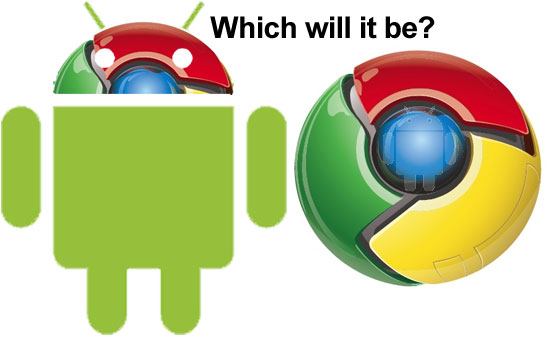
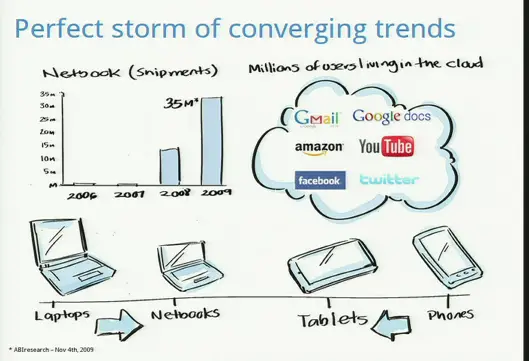
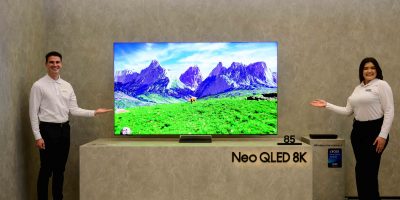
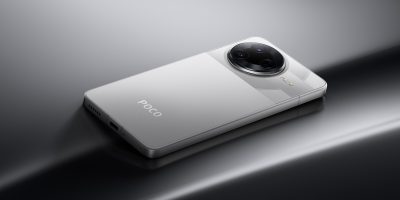
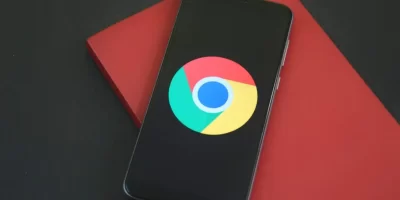
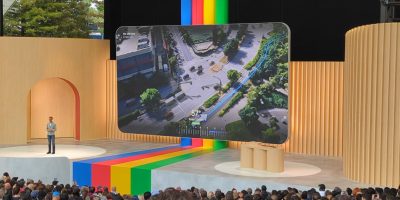
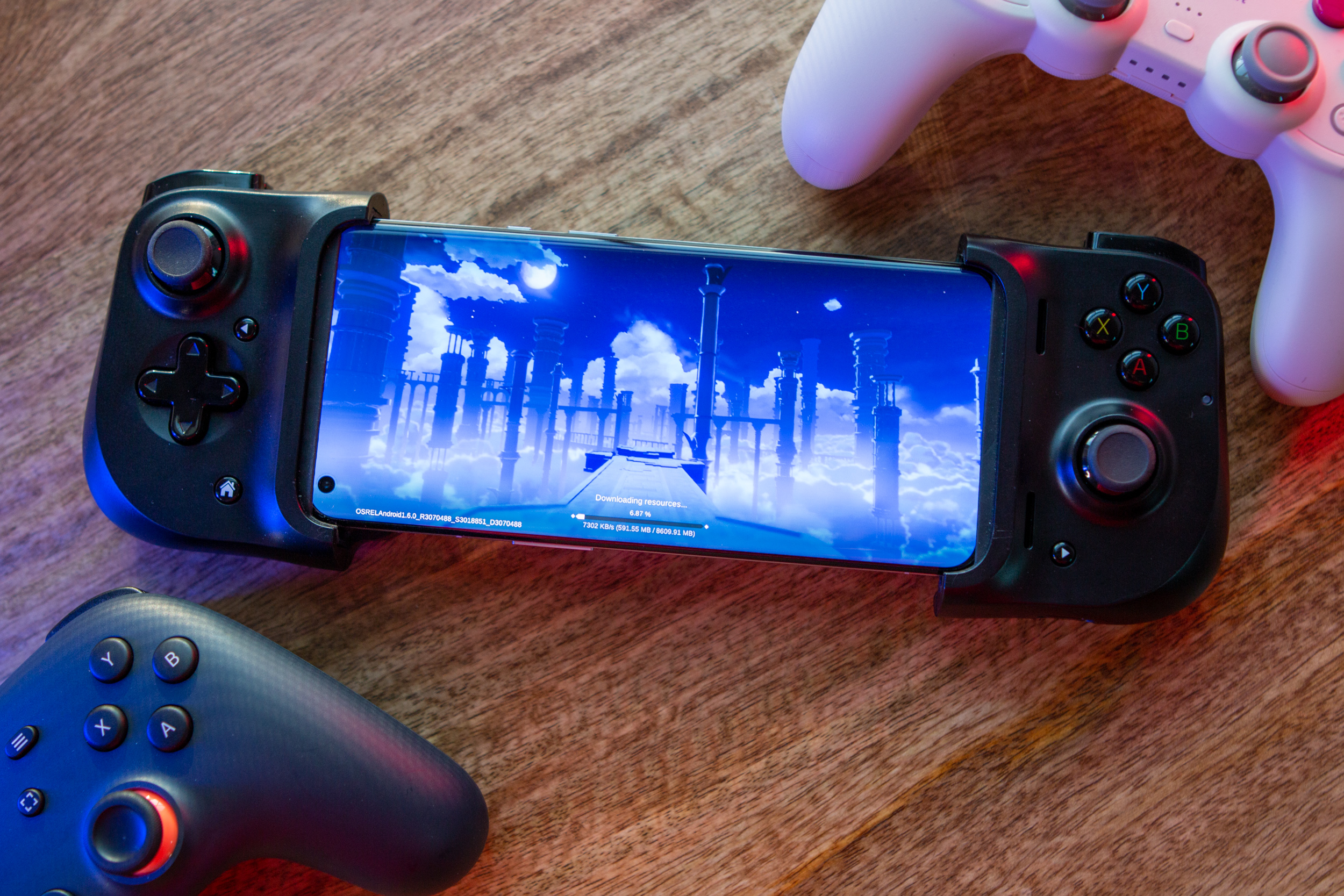

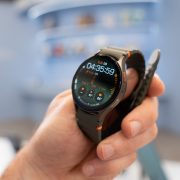
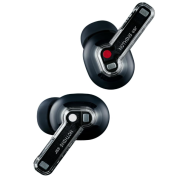
The answer is easy, it won’t become one os because android is for arm and chrome is for x86. That said, it definatly might become complementary systems which work really well together.
For today’s mobile devices, apps make the platform. A netbook, though more powerful than a phone, still needs a lightweight OS, and lightweight apps.
Perhaps the biggest hurdle for Android competing in the netbook arena is driver support. Manufacturers developing Android devices would have to write those drivers or accept limited device support. Google is working to ensure that Chrome OS will have built-in support for a variety of devices.
Where drivers are a limiting factor for Android, apps will be that weakness for Chrome OS. The platform will have a great advantage over others if it has access to the Android Market. Apps will already be both lightweight and cloud-centric – ideal for a device that is expected to be ‘net-connected. Millions of existing Android users would get access to games and apps which are familiar and already purchased (one would hope for multi-device availability).
I am very excited to see what next year brings to both platforms.
Quote: “No matter what happens, there will always be a need for a device you can carry in your pocket (smartphone) and a larger device with a bigger screen you can access in a coffee shop or on the couch (netbook).”
I think people are missing something. When your phone has a good enough processor in it, you won’t need a larger device with a bigger screen – you’ll need a bigger screen. Period. That day is close, and for basic email/internet folks, it’s already here. The devices need to catch up.
It’s worth noting that both are, under the hood, built on top of Linux. So already, the two “operating systems” share a whole lot of code. Linux runs on ARM, x86, and a bunch of other architectures as well. Android applications are mostly written to the Dalvik VM, so they can theoretically run on any architecture. Unfortunately, I think Android and Chrome OS will stay separate for a long time, which is a shame. I don’t understand the argument that Android and Chrome OS are for different markets – they could still share a lot of infrastructure. I doubt that these two systems will naturally migrate towards each other – Google will need to make it a priority if they want them to merge in any meaningful way.
It’s clear there will be convergence, it’s just a question of how long it will take. People want to communicate, and have a powerful, always-on, always-connected computing device. To say the current definition of a netbook or a smartphone will stay static is ludicrous. Next, there will be “netphones” or “smartbooks”. ;-)
I really think Google “gets it” with respect to their goals: a laptop that doesn’t need an O/S (Chrome OS), and a smartphone that doesn’t need a voice carrier (Google Phone). Oh, I forgot, there is no Google Phone. (Yeah, right.)
Given that the phone hardware gets more powerful, and that a netbook’s focus is _not_ on the hardware, the only advantage for the netbook will be pixels. Surely there are ways of pushing more pixels from a phone, either by projection or some sort of wearable display (which is also projection, I guess).
I have always viewed netbooks as the worst of two worlds (phones and laptops), with the advantages of neither.
Don’t underestimate where the smartphones are going.
If the Webkit build is updated, plugins like Flash are fully integrated in Android, it will “become” as Chrome OS eventually.
SaaS over the web solutions, other cloud services will run on Android, if it doesn’t work now it will soon.
Chrome OS is a very basic instant-on browser “operating system”.
Android is a full Java-based operating system, running on a Linux kernel.
Both run on top of a Linux kernel, so it will be compilable to all kinds of processor architectures like X86, PowerPC, ARM, MIPS, DEC Alpha, IA64, you name it.
“android is for arm and chrome is for x86”
Uh, no. Android has been ported to x86 (and even productized that way), and Chrome has been stated, up front, to be for both ARM and x86. This is not the line in the sand between the two OSes.
My personal bias, if we’re going to look at this as “Chrome Browser on the Android OS” vs “Android Apps on the Chrome OS”, would be to see the Chrome Browser on the Android OS.
But I hope that the idea of their convergence isn’t that trivial.
I’d like to see elements of the underlying pieces of both end up being blended. Things like:
1) Touch Screen, Multi-Touch, Screen Rotation, Automatic Screen Rotation (via Accelerometers), GPS, etc. features from Android ending up in Chrome OS.
2) Netbook support (higher screen resolutions, external display support, USB device support, etc.) features from Chrome OS ending up in Android.
3) Better multi-tasking from Chrome OS ending up in Android.
4) Fast-boot/Splashtop type capabilities in Android (even on a phone/MID, this would be a good thing).
Those things are completely independent of the “Chrome on Android vs Android on Chrome” comparison. That comparison is more about high level applications. My items more fundamental to the underlying OS, what devices they can each be run upon, and how well they take advantage of those devices.
And, of course, I also want to see:
5) Dalvik on Chrome OS
6) Desktop quality browser (Chrome Browser is a good start) on Android
But, like I said, the level of convergence/integration I want to see between Android and ChromeOS is more fundamental than “Chrome on Android vs Android on Chrome”.
If Android can be enhanced to provide: a fast boot time, a good desktop browser, and an independent App Store, I would be happy to make it my primary OS for my netbook. Android can provide all that Chrome OS would ever be able to provide, and some more.
A Web OS like Chrome is a joke in my book. Web Apps (including those from Google) are mediocre at best. And Html/Javascript is the most horrible solution for a User Interface. If anyone can provide for a few short-comings of Android (it won’t be Google i’m sure), it will be a force to reckon with – both on smartphones and desktops.
Android apps will not run on Chrome OS. The entire point of Chrome OS is that the browser is the only application, and you don’t have to worry about all the kinds of issues that arise when you start installing third-party software on a system and giving it large amounts of access to your PC. Things get mucked up and security is almost impossible. Watch the Chrome OS security video Google put on youtube.
The strength of the Android market is that anyone can develop for it with very little restrictions – and if you had Joe Programmer’s half-baked app suite being installed on Chrome, you could no longer be assured of that super-easy user experience that they so deeply want to provide.
As I see it, the main difference between the two OS’s is that Android actually has a talented design staff behind the product and Chrome doesn’t. Not to say that the designers working on Chrome aren’t talented, just that they are extremely understaffed given the ambitions and scope of the project.
Seems like Chrome is largely driven by Engineering (like everything else at Google) and naive regarding the future of home computing. They seem to be designing a product under the assumption that nothing will change 5 years from now (ie: workstations will continue to be significantly more powerful than handhelds, mobile will continue to be low-res, users will still be using a mouse with their desktop/laptop, etc). Hence, the need for 2 different operating systems.
As a platform, Android is much further along than Chrome. It doesn’t make sense to duplicate efforts within the same company. Why not figure out a way to design Chrome within Android? That’s the logical route. Except, one thing…
Google’s whole marketing angle for Chrome is that YOU DON’T NEED AN OS. Operating systems are bloated. They’re soooo 20th century (which is the WORST thing you could possibly be in the 21st century). They require so much extra code (…because they actually do more than surf the web). Well, Android happens to be an operating system. What about that?
Google needs to nip this thing in the butt, quickly. Chrome isn’t very well thought out from a user experience perspective. They’re only able to release Chrome because they have a bazillion dollars and the resources to do so. It really isn’t fulfilling a user need or doing anything revolutionary. This is an internal pet project for Google execs, not something the public is looking for…
Android just makes more sense as a platform. It’s unfortunate that Google’s leaders don’t see it like that. Think of how much faster the Android platform would evolve if Google was throwing twice the amount of resources at it…
If you ask me the idea of Chrome OS, only having a browser kinda, doesn’t sound like a really good idea. It feels like it would be way to simple and not as functional, as it could be. Since it can’t really do anything else. I would see no point in having something like that.
Integrating mobile systems with desk systems so they seamlessly sync and work well together appears to work swimmingly for Apple…that said, I don’t see why Google wouldn’t follow suit with making Chrome and Android sync and share aspects of one another.
Completely meld together? No, you don’t see a windows mobile phone running Vista or 7. The iPhone doesn’t run Leopard. Android devices won’t become Chromdroid or Androme. However the aforementioned do sync with each other…so I believe it would be reasonable to assume that Chrome and Android will have integration in the coming years.
I agree what has been said above, they wont become one, they will surely borrow from one another (perhaps ARM support for Chrome OS?) but their two forks in the road in terms of end goals.
Will Chrome OS have an email client for POP3/Imap, and can it save downloaded files to a USB memory stick? If not, it’s DOA.
I just want fast native apps. Like the chrome browser. What a welcome relief from the bloated firefox.
None of this dalvik java or html web app sluggishness.
I wouldn’t pretend to know what Google plan to do with Chrome OS and Android. I know that I would like to see some level of compatibility between the two. An earlier comment about x86 vs ARM isn’t really correct as a HAL (hardware abstraction layer) can get around that easily enough – with apps running above the layer, they don’t care about the hardware and the system delivers services and function through common, defined API.
Sounds like Google wants to pit the two against one another and let capitalism and consumerism determine the winner or less likely a convergence. This will be interesting to watch unfold.